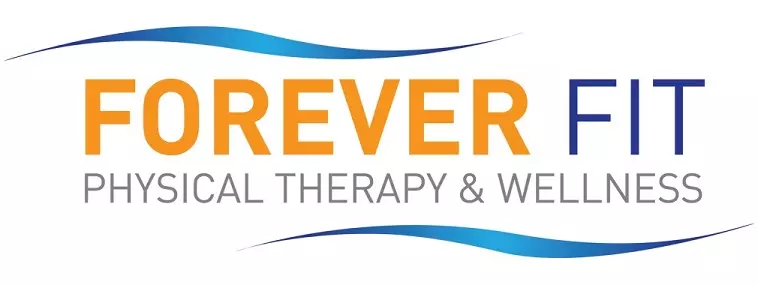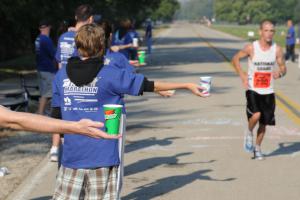In the middle of the summer, the weather starts to look a lot like this:
It’s important to stay hydrated all year round, but during the summer water intake is even more imperative. Drinking plenty of water should be part of your routine before, during and after any physical activity outdoors, whether it be a brief bout of exercise, a hobby like gardening, or a long day of work outside.
Water is a huge part of our body’s proper functioning. Why is water so important for physical activity?
Water regulates body heat: When we exercise, some of the body’s energy (ATP) is used for muscle work, but some of the energy is “wasted” in the form of heat, and our body temperature goes up. When we sweat, the water takes some of this heat energy with it when it evaporates, cooling our body temperature. When you work out in the heat, replacing this water is vital so you can continue to regulate body temperature and not overheat.
Water mediates chemical reactions: During exercise, your body’s energy demands increase dramatically. ATP is a molecule that acts as the energy “currency” of the body. In the muscle cell, a reaction called hydrolysis uses water (H2O) to break an ATP chemical bond and in doing so releases the energy needed for muscle contraction
When your body needs more energy, your body needs more water.
Water makes up a large part of all cells, including muscle cells: dehydrated muscles are unhealthy muscles. Well-hydrated muscles are more flexible and supple, which means an improved workout and possibly even prevention of injury to the muscle
Water is necessary for optimal blood circulation: Just under half of your blood is composed of red or white blood cells; the rest is blood plasma, which is mostly water. Extreme dehydration negatively affects blood circulation, which can cause symptoms like low blood pressure, lightheadedness, and fatigue. The heart is already working hard during exercise, and low blood pressure requires it to work even harder to force blood through the body.
(“centrifugation” just means spinning a mixture in a test tube fast enough that it separates into parts, and the densest part settles at the bottom. Red blood cells are more dense than plasma)
Water lubricates joints: The synovial fluid that rests between a joint is made primarily of water. When you’re well-hydrated, there is more fluid in joints, reducing stiffness and protecting the joint from damage. This is especially important during physical activity, as it places more pressure through the joint.
So how much water is enough to stay well hydrated?
Everyone is different, but the American Council on recommends :
-
Drink 17 to 20 ounces of water 2 to 3 hours before you start exercising
-
Drink 8 ounces of water 20 to 30 minutes before you start exercising or during your warm-up
-
Drink 7 to 10 ounces of water every 10 to 20 minutes during exercise
-
Drink 8 ounces of water no more than 30 minutes after you exercise
For a more intense and long bout of exercise, like a marathon, you can weigh yourself right before and right after exercise. The difference in weight is due to water loss, and you can drink 16-24 oz of fluid per lb lost to replace your water.
While it’s possible to be too hydrated, this is highly unlikely for the athlete during summer time exercise. This rare case is called hyponatremia, or low sodium. By drinking less water to avoid this condition, you will more than likely become dehydrated. If you switch some of your water intake out with gatorade or your preferred electrolyte drink, it can help prevent this possibility.
To prevent heat-related injury and improve physical performance in the heat, remember these key points:
-
Drink water regularly throughout the day, especially before, during, and after exercise. If you feel thirsty, drink water right away.
-
Check your urine. The easiest way to gauge hydration is the color of urine – the lighter the color, the more hydrated you are.
-
Avoid excessive alcohol and caffeine if you know you plan to exercise in the heat as both of these have dehydrating effects.
-
Include water-dense fruits and vegetables in your diet.
-
REST if you begin to feel symptoms like nausea, rapid, maximal heart rate even at lower levels of exertion, fatigue,excessive sweating, and excessive muscle cramping. These are all signs of heat exhaustion
-
REST and CALL 911 if you feel extremely hot and feverish, stop sweating with dry, hot skin. These are symptoms of heat stroke, which can cause loss of consciousness and even be fatal.
-
If you experience heat exhaustion or stroke or notice them in somone nearby, drink more water and cool the body with an ice pack or cool, damp cloth around the neck, under the armpit, and by the groin.

